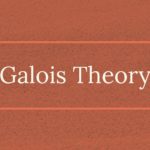Application of Field Extension to Linear Combination

Problem 335
Consider the cubic polynomial $f(x)=x^3-x+1$ in $\Q[x]$.
Let $\alpha$ be any real root of $f(x)$.
Then prove that $\sqrt{2}$ can not be written as a linear combination of $1, \alpha, \alpha^2$ with coefficients in $\Q$.
Sponsored Links
Proof.
We first prove that the polynomial $f(x)=x^3-x+1$ is irreducible over $\Q$.
Since $f(x)$ is a monic cubic polynomial, the only possible roots are the divisors of the constant term $1$. As we have $f(1)=f(-1)=1\neq 0$, the polynomial has no rational roots. Hence $f(x)$ is irreducible over $\Q$.
Then $f(x)$ is the minimal polynomial of $\alpha$ over $\Q$, and hence the field extension $\Q(\alpha)$ over $\Q$ has degree $3$.
If $\sqrt{2}$ is a linear combination of $1, \alpha, \alpha^2$, then it follows that $\sqrt{2}\in \Q(\alpha)$. Then $\Q(\sqrt{2})$ is a subfield of $\Q(\alpha)$.
Then the degree of the field extension is
\begin{align*}
3=[\Q(\alpha): \Q]=[\Q(\alpha): \Q(\sqrt{2})] [\Q(\sqrt{2}): \Q].
\end{align*}
Since $[\Q(\sqrt{2}): \Q]=2$, this is impossible.
Thus, $\sqrt{2}$ is not a linear combination of $1, \alpha, \alpha^2$.
 Add to solve later
Add to solve later
Sponsored Links













